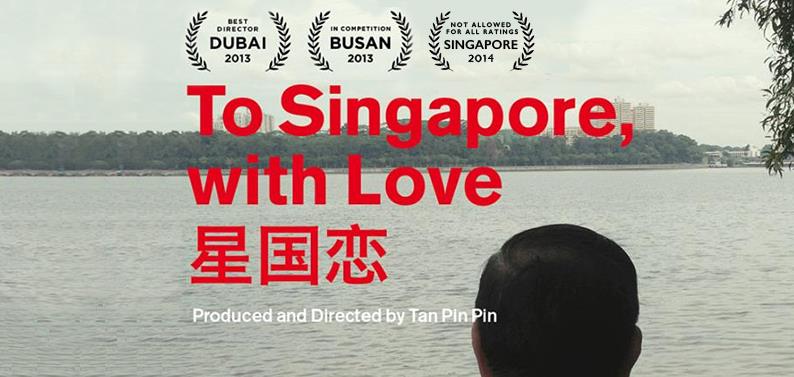
The Singapore government has banned the public screening of this film because it is deemed as a threat to the national security.
Singapore’s decision to ban the public screening of a documentary that featured an interview with six political exiles has put the spotlight on how the country is regulating and even censoring the arts and entertainment industry.
The film “To Singapore, With Love” was classified by the Media Development Authority (MDA) as “not allowed for all ratings” because it is allegedly a threat to the national security. The MDA later backtracked, declaring that the film can have private screenings but only for educational and non-commercial purposes.
Many Singaporeans have already denounced the MDA for banning a documentary that received favorable reviews and awards in many film festivals outside Singapore. They urged the government to reconsider its decision and allow the public, especially the youth, to listen to the stories of the exiles featured in the film.
Singapore’s ruling party, the People's Action Party (PAP), has been in power for the past half-century. It claims that some of the exiles interviewed in the film are communist leaders who tried to overthrow the government in the 1960s.
Many disagreed, arguing that this is an acceptable reason to ban the film or categorize it as a threat to the national security. Artists who signed an online petition in support of the film have described the rating given by the MDA as a form of censorship which “does nothing to promote a vibrant, informed society.”
Tan Pin Pin, the director of the film, hoped that the film would stir conversations about the country’s past. “We need to be trusted to be able to find the answers to questions about ourselves, for ourselves,” she said in a Facebook statement.
The controversy has revived debate about the policies implemented by the MDA in overseeing the arts. The “not allowed for all ratings” classification may seem harmless, but it is used to ban a work of art that undermines national interest or if it will “cause feelings of ill-will between different racial or religious groups or cause offence to any racial or religious group, glorify lifestyles or behaviors contrary to prevailing social norms, or be excessive and/or exploitative in its depictions.” It is the MDA that decides if an art work or performance is safe for public viewing.
Perhaps recognizing that this mechanism would often lead to clashes between the government and the art community, the MDA proposed the Arts Term Licensing Scheme last May, which would promote “self-classification and “co-regulation” in the arts.
Under the proposed scheme, art groups with a proven track record can self-classify their works. This seemed a better alternative compared to the current practice of requiring an art group to apply for a license two months before a performance.
For Arts Engage, a network of Singaporean artists, the proposed system by the MDA is still restrictive. They argued that it is also misleading to use the term self-classification because MDA “content assessors” will still review the rating. Further, the new regulation specifies that “unscripted performances, or those touching on race, religion or politics, will still have to be submitted to the MDA for an event-based license.”
Arts Engage described the “content assessors” as “essentially MDA officers by proxy.” They also disagreed that artists would have the freedom to self-classify their works since these are still “subject to prescribed guidelines and criteria pre-determined by MDA.”
Since a misclassification will be penalized, the group also warned that it could make “self-censorship more prevalent.” The video below, which featured prominent artists in Singapore, summarized the position of Arts Engage:
After conducting a public consultation, the MDA agreed to withdraw the proposed scheme in August. But a week later, the MDA ordered the banning of Tan Pin Pin’s documentary.
The censorship regime still exists because the Public Entertainments and Meetings Act (PEMA) remains in force. It is the law that mandates the MDA and the Singapore Police Force to “suspend or cancel a public entertainment license if it is contrary to public interest, indecent/immoral/offensive/subversive or improper in nature.”
The law empowers the MDA to approve art works with “acceptable content”:
To ensure that the content regulation system is guided by community views on acceptable content, while not compromising the overarching need to uphold community values, support racial and religious harmony, and safeguard national and public interests.
Perhaps it is time to review the legal framework that undermines the freedom of artists. Arts Engage made this point in opposing the “self-censorship” scheme proposed by the MDA:
The current model of the MDA as gatekeeper and mediator between artists and disgruntled members of the public is deeply flawed. It sets up a false dichotomy of ‘artists versus community’, perpetuating the notion that society needs to be protected from its artists.







1 comment
Sorry but a typo I noticed in para 5, “Many disagreed, arguing that this is an acceptable reason…” It should read as “arguing that this is *not an acceptable reason” I believe.